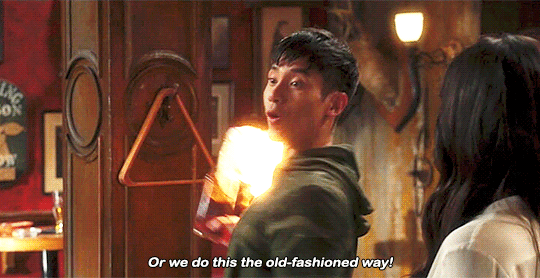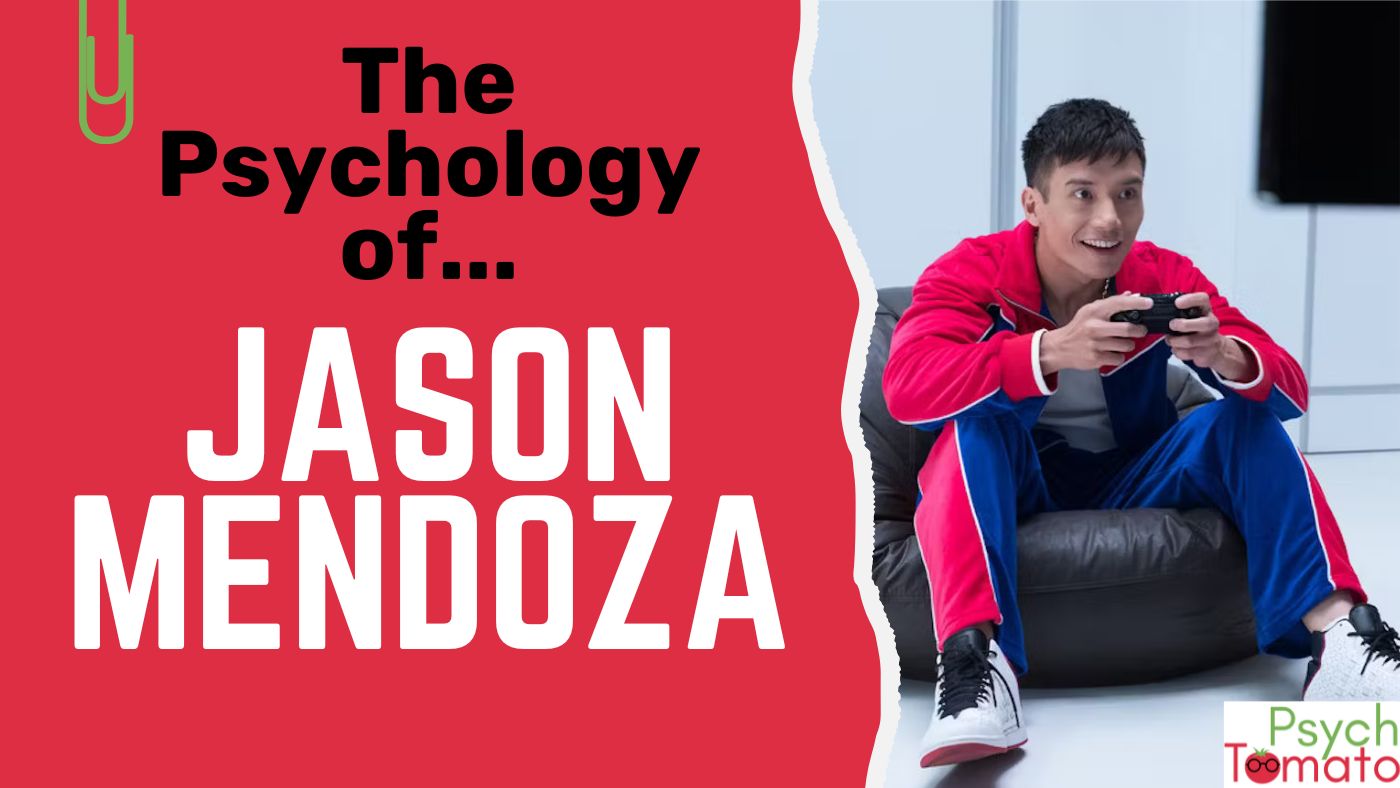Jason Mendoza might be the least likely candidate for moral enlightenment in The Good Place. A sweet but clueless DJ from Jacksonville, Florida, Jason’s journey is less about mastering philosophy and more about revealing the quiet power of loyalty, optimism, and kindness.
But beneath his airheaded exterior lies a surprising truth: you don’t need to be a genius to make a meaningful impact on the people around you.
Before We Begin: A Quick Heads-Up
Spoiler Warning: This article contains spoilers for The Good Place, including major plot points about Jason’s arc, his relationship with Janet, and the series finale.
Why We’re Talking About This Character: This isn’t about making fun of Jason’s lack of book smarts. Instead, we’re using his character to explore real psychological concepts like emotional intelligence, prosocial behavior, and the role of optimism in resilience. Fictional characters like Jason are excellent for helping us see that intelligence isn’t one-dimensional.
Meet the Character
Jason is first introduced under a false identity: posing as a silent Buddhist monk named Jianyu in the “Good Place” neighborhood.
In reality, he’s a Filipino-American amateur DJ and small-time criminal from Jacksonville, Florida, with a deep love for the Jacksonville Jaguars, EDM, jalapeno poppers, and Molotov cocktails (“for problem-solving purposes only,” as he might say).
Jason is impulsive, distractible, and often hilariously unaware of what’s going on. He’s the guy who will interrupt a serious group meeting to suggest a dance-off or a trip to a trampoline park.
But he’s also fiercely loyal, quick to forgive, and genuinely supportive of his friends. His moral compass doesn’t come from studying Kant or Aristotle. Instead, it comes from a gut-level belief in sticking by the people you care about.
To exactly that point, one of the most important relationships in Jason’s story is with Janet, the all-knowing, human-like information system of the afterlife.
What begins as an unlikely romance grows into one of the show’s most heartfelt dynamics. Jason loves Janet without trying to change her, and Janet (who is not technically human) learns more about human emotions through Jason’s unfiltered affection. Their bond becomes a cornerstone of Jason’s development, showing that even someone who struggles with complex reasoning can excel at emotional connection.

Spotlight Scenes: Loyalty Over Logic
Jason’s first big reveal comes in Season 1’s “Jason Mendoza,” when he confesses to Eleanor that he’s not a monk at all. While his confession is partly due to panic, it’s also an early sign of his honesty when it matters.
All throughout the series, Jason’s endless enthusiasm helps the group endure some truly intense and bizarre predicaments, whether it’s sneaking into The Bad Place, stealing ledgers from the accounting department, or trying to prevent the Judge from rebooting the entire world. Even when he doesn’t fully understand the stakes, his positivity keeps morale afloat.
Jason’s unique ability to keep spirits high even in absurd, high-pressure situations becomes one of his greatest contributions to the team. That’s the kind of talent that’s easy to underrate, but incredibly vital to have regardless of whether you’re on Earth or in the afterlife.
That said, it’s Jason’s fundamental sweetness and accepting nature that really define him.
His relationship with Janet deepens in “Best Self” and “Jeremy Bearimy,” where Jason’s simple but sincere approach to love stands out. He doesn’t get caught up in labels or existential questions; he just knows he loves Janet and wants her to be happy.
Of course, this culminates in the tear-jerking finale, “Whenever You’re Ready,” when Jason chooses to remain in the afterlife forest for centuries, waiting to give Janet a necklace he made for her. It’s an act of pure patience and devotion that serves as the ultimate proof that his love and loyalty run deep, even if his attention span in other areas doesn’t.
The Psychology Behind the Goofball
Jason’s strengths lie in emotional intelligence, particularly in empathy and relationship-building.
Emotional intelligence, defined by Mayer, Salovey, and Caruso (2004), includes the ability to perceive, understand, and manage emotions: all skills that Jason often shows in his own unconventional way. He may not grasp complex moral theory, but he’s quick to notice when a friend is upset and is always eager to offer comfort or encouragement.
He also embodies prosocial behavior, which is voluntary actions intended to benefit others. Research shows that prosocial acts, from helping friends to showing emotional support, can strengthen relationships and improve group cohesion (Eisenberg & Miller, 1987). Jason’s willingness to help even when he’s confused about the plan (which, let’s be honest, is most of the time) makes him a dependable teammate.
Finally, Jason’s relentless optimism reflects a trait linked to resilience. Of all of his strengths, this is the biggest one he brings to the group as someone who is fantastic at driving things forward despite whatever setbacks might occur.
Think about it. At least in the early days of the series, Eleanor is proudly the first to give up when the going gets tough. Chidi, meanwhile, goes into a tailspin about a choice as simple as what kind of muffin he’d like to eat, and Tahani is quick to call attention to issues but historically quite slow to handle them herself.
You see, optimistic people tend to recover from setbacks more quickly and maintain motivation in the face of challenges (Carver & Scheier, 2014). While Jason’s optimism sometimes borders on obliviousness, it also allows him to stay hopeful in situations where others might give up. His patience in waiting for Janet (again, measured in centuries) turns what could be seen as naivety into a truly profound act of emotional endurance.

When Simple Thinking Cuts Through the Noise
Yes, Jason is funny and has no shortage of hilarious moments in The Good Place that stem from his shenanigans. But, I, for one, refuse to let Jason be pigeon-holed as just the comic-relief himbo of the group!
Hear me out, here:
Jason’s lack of overthinking sometimes works to his advantage.
While brainy Chidi is paralyzed by indecision and constantly agonizing over every possible outcome, Jason often jumps straight to a simple, actionable solution. In decision-making research, this can be linked to heuristic processing or using mental shortcuts to make quick judgments (Tversky & Kahneman, 1974).
There are several scenes that can be cited for this, but easily one of the funniest and most surprising examples comes in a reboot when Jason, of all people, is the one who figures out that they’re actually in the Bad Place. Michael admits that “that one particularly hurt,” because Jason wasn’t supposed to be the sharp-eyed detective of the group. But Jason’s lack of overcomplication meant, at least in this one reboot, that he could see what others missed.
This contrast with Chidi (as the group’s resident brain) is striking: Chidi’s analytical depth is valuable for understanding complex moral problems, but Jason’s straightforward approach can cut through the fog when overanalysis becomes a trap. In group dynamics, having both types of thinkers can create a balance for combining insight with action.

Beyond Jacksonville: Why It Matters
A common misconception is that intelligence is purely academic or logical. We see it all the time and then stare in confusion when a Nobel prize-winning economist can’t seem to figure out the baggage claim kiosk at the airport.
Jason’s story challenges that by showing the value of emotional warmth, loyalty, and optimism. Granted… you probably don’t want him designing your afterlife escape plan, but you’d be wonderfully lucky to have him in your corner when things get tough.
Maybe I’m getting a little fired up about a character in a TV show, but here’s the thing…
This all matters because many people underestimate their own worth if they struggle in traditional academic or professional settings. How often are people convinced that they’re “just dumb” and then act with a kind of resignation?
Jason reminds us that kindness, support, and joy are forms of intelligence too, and that these types of intelligence are ones that can change lives just as much as clever problem-solving. His relationship with Janet underscores this point: their love thrives not because Jason is perfect, but because he’s present, genuine, and unafraid to show affection.
Tomato Takeaway
Jason Mendoza’s journey proves that you don’t have to be the smartest person in the room to make a difference. His loyalty, optimism, and big heart show that sometimes, the best way to help others is simply to be there for them consistently and without judgment.
And in love, as with Janet, his story reminds us that sincerity often matters more than sophistication.
Now it’s your turn to join the conversation!
Have you ever had a “Jason” in your life whose kindness mattered more than their expertise? Share your story in the comments!
Fueled by coffee and curiosity, Jeff is a veteran blogger with an MBA and a lifelong passion for psychology. Currently finishing an MS in Industrial-Organizational Psychology (and eyeing that PhD), he’s on a mission to make science-backed psychology fun, clear, and accessible for everyone. When he’s not busting myths or brewing up new articles, you’ll probably find him at the D&D table or hunting for his next great cup of coffee.



I certainly need to be a little bit more Jason and less Chidi
We could all certainly take a page or two from Jason’s playbook. BORTLES!!!!!